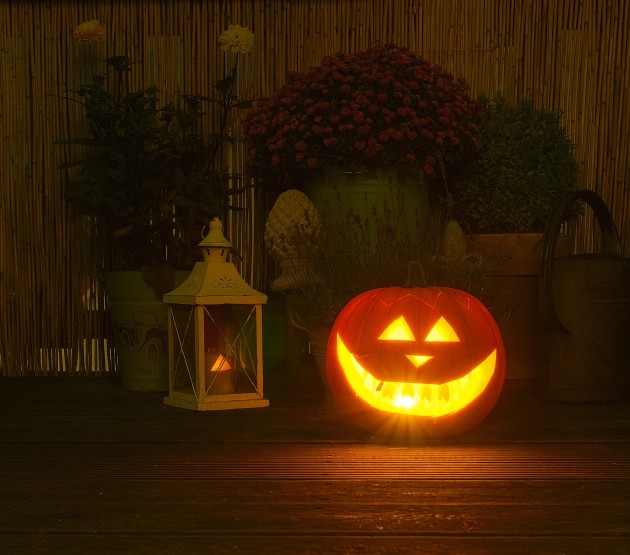
by Amelia Dornbush
What Reading Heschel Taught Me About My Childhood Halloween
 People often assume that since I didn’t spend the first 13 years of my life growing up Jewish (it’s a long story), I must have been raised Christian. This isn’t really true.
People often assume that since I didn’t spend the first 13 years of my life growing up Jewish (it’s a long story), I must have been raised Christian. This isn’t really true.
“What were you before you were Jewish?”
“Nothing?”
“What do you mean nothing?”
“I don’t know, nothing. We just, didn’t do religion.”
By the time I was 13, I had set foot in synagogue more times than I had in a church. Sure, we did celebrate Christmas—just without Christ or Mass. We had tried doing some Humanist something-something when I was little, but that was a flop. I had neither baptism nor brit habat, neither bat mitzvah nor confirmation. Until my parents converted to Judaism, religion just wasn’t a thing in my life.
This meant the number of holidays I could really sink my teeth into without the complication of God was extremely limited.
Halloween, though, was among them.
It wasn’t just about the costumes and the candy. Halloween was about going over to my dear friend’s house at 733 and eating the chili her mom made. There were always three different kinds served, with a salad to accompany. Cold La Croix sat glistening in metal buckets of ice next to bottles of wine.
It was about time spent with friends, and parents and parents’ friends, around an outdoor fire in the front driveway during Atlanta’s sometimes-cold-sometimes-not-so-cold end of October. The fire always made the air smell seasonal.
It was about counting out the haul of sweets after a successful trick-or-treat of the neighborhood while feeling like you should probably study for your biology test. And then realizing that one of your friend’s parents’ friends was a biology teacher and could help.
Fundamentally, the meaning of the holiday was about the people I was reliably guaranteed to see every year at the annual celebration. It was a holiday I felt truly belonged to the people whom I loved—and to me, no asterisk or caveat or religious identity label needed.
I wouldn’t encounter Abraham Joshua Heschel’s conception of sacred time until I was in college, but the first time I experienced the sensation of creating holy time was on October 31 at 733.
I have followed the debates as to whether or not Halloween is okay for us to celebrate as Jews, and I find them baffling. Yes, there are parts of Halloween that are not great, but the same this could be said for literally any holiday—Jewish or otherwise. To me, the significance of Halloween is that it is one of the four widely celebrated holidays in the U.S. that are not religiously marked, providing an opportunity to create a space of sacred time across religious (and irreligious) lines.
Though the era of Halloween parties at 733 has come to a close, I will celebrate this year in the tradition of my childhood—by donning a costume I am proud of, cooking chili, and setting time apart for friends.
The views and opinions expressed in this article are the author’s own and do not necessarily reflect those of Lilith Magazine.